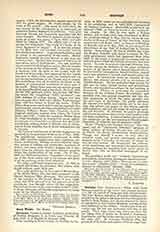

Gordon, ANDREW, Benedictine monk, physicist; b. June 15, 1712, at Cofforach in Porfarshire, Scotland; d. August 22, 1751, at Erfurt, in Saxony. Having traveled extensively on the Continent, Gordon became a Benedictine and in 1737 was appointed professor of natural philosophy in the University of Erfurt. He soon acquired considerable reputation by his works on electricity, among which were his “Phwnomena electricitatis exposita (1744); “Philosophia utilis et jucunda” (1745); “Physic experimentalis elementa” (1751-52). For the sulphur ball of von Guericke (1671) and the glass globe of Newton (some say Hauksbee), Gordon substituted a glass cylinder which made an efficient frictional machine. Two other inventions of the Benedictine physicist are noteworthy: the first is the light metallic star supported on a sharp pivot with the pointed ends bent at right angles to the rays and commonly called the electrical whirl; the second is the beautiful device known as the electric chimes. Though these inventions are described in all textbooks of electricity, the name of Gordon is never mentioned, though both inventions are fully described by him in his “Versuch einer Erklarung der Electricitat” (Erfurt, 1745). Franklin, who is usually credited with the latter invention, simply adopted the “German chimes” (described by Watson in his famous “Sequel”, 1746) to serve as an electrical annunciator in connection with his experimental (lightning) rod of 1752. The “whirl” is of special interest because it was an electrostatic reaction motor, the earliest of its kind; while the second derives its theoretical importance from its being the first instance that we have of the application of what has come to be called “electric convection”.
BROTHER POTAMIAN

